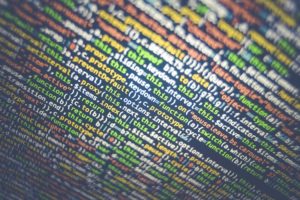 How does the disruptive potential of an emerging digital technology fit within existing law and policy regimes—or in what ways does it not? When does technical progress in one area interact with preexisting rules and regulations in unexpected ways? . . . And how should we, as humans, respond to disruption—with its potential for progress and for harm—while preserving the systems that sustain our core values and ideals?
How does the disruptive potential of an emerging digital technology fit within existing law and policy regimes—or in what ways does it not? When does technical progress in one area interact with preexisting rules and regulations in unexpected ways? . . . And how should we, as humans, respond to disruption—with its potential for progress and for harm—while preserving the systems that sustain our core values and ideals?
These are the questions Professor Alicia Solow-Niederman asks as she introduces this series on emerging digital technologies and the law. Just as such technologies, or “disruptive technologies,” shape the legal system, old laws and new laws alike shape technologies that continue to change and pervade our lives, for better or for worse. From developments in artificial intelligence to the increasing use of blockchain, these new technologies call to question and push the boundaries of existing law and policy that deal with issues such as copyright and consumer privacy. Further, these developments force us to confront and rearticulate core public values and human stakes, from constitutional rights in criminal proceedings to administrative record-keeping for public benefit. This series contributes to the ongoing conversation by examining concrete instances of this technology-and-law interplay.
- Emerging Digital Technology and the "Law of the Horse"
by Professor Alicia Solow-Niederman - Blockchain-based Digital Assets and the Case for Revisiting Copyright’s First Sale Doctrine
by Phillip Shaverdian - Blockchain Technology and the Government: Dealing With the Threat of Data Manipulation and Increasing Records Longevity
by Alexander Fung - Injustice Ex Machina: Predictive Algorithms in Criminal Sentencing
by Andrew Lee Park - Destination Unknown: The Perilous Future of Blockchain and Artificial Intelligence Technologies Under the California Consumer Privacy Act of 2018
by Chris Ott
